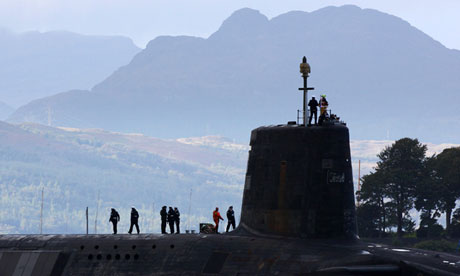Workers at Rosyth believe independence would be “catastrophic” for the 1,700 employees, industrial trade union chairman Raymond Duguid said.
But he added they had not seen the SNP since defence spokesman Angus Robertson visited five years ago.
Alistair Darling, chairman of the pro-UK Better Together campaign, was in Rosyth yesterday as part of a “listening tour” of Scotland, which also took in businesses and farmers in Edinburgh and Tranent, East Lothian.
Mr Duguid believes Rosyth would be “sacrificed” in favour of Faslane naval base on the Clyde if Scotland became independent.
He said: “As the trade unions in the yard, we have got a fear that, if independence was to go through, it would be quite catastrophic.
“The foundation of our work is refitting Royal Navy ships and building these two [aircraft] carriers, and, without these foundations, we couldn’t support the core workforce that we have got.
“A Scottish navy wouldn’t be able to support that.
“Funnily enough, the SNP has not come forward to speak to us. They’ve never asked to speak to us yet. They’ve not taken on board our views.
“The only person we spoke to, and that was about five years ago, was Angus Robertson, and he made a fool of himself.
“We asked him how big a Scottish navy would be, and he said, ‘About the size of Norway’. I asked how big that was and how many ships there would be, and he said, ‘I’m not actually sure but they’ve got a good website’.”
During the SNP conference last October, Mr Robertson said he had visited neighbouring countries on fact-finding trips to discover how an independent Scotland could contribute to defence in the North Sea.
But Mr Duguid believes a Scottish navy would not be big enough to sustain shipyards on both the Forth and Clyde. He said: “The trade unions network with each other, and we have listened to the shop steward on the Clyde, who said he has been told by Angus that everything will go to them.
“Faslane will be fine, but if everything goes to Faslane, there is nothing for Rosyth, so we are the sacrifice.
“Our people need jobs. If Faslane closes, it’s not like we can go work for Amazon or sit watching a wind turbine go round and round.”
Mr Darling said: “The size of the navy of any country largely depends on its wealth.
“The fact that we have the UK, which is a very large economy and country, means that we have a navy. Now, even in these hard times, e actually would need far more ships that would be built and maintained in Scotland than we ever would if you are a much smaller country like Scotland.
“Ireland has a navy, but it’s a very small navy. Scotland would need a navy, but nothing like the size of the Royal Navy.”
He added: “My argument isn’t that Scotland couldn’t afford to go it alone. Any country could go it alone, but you would have to make choices.”
Mr Robertson, who is the SNP’s Westminster leader as well as defence spokesman, said: “The SNP and the Scottish Government have regularly and recently met trade unions working in the defence sector and look forward to the positive contribution that can be made towards the Scottish Government’s white paper on independence.
“Mr Duguid is a leading activist in the anti-independence ‘No’ campaign. However, if he has any genuine and specific proposals to optimise the defence sector in a sovereign Scotland, I look forward to receiving them.”
He added: “The UK track record on defence in Scotland is appalling, with a multi-billion-pound annual defence underspend and the loss of more than 11,000 jobs in the last decade.”


















